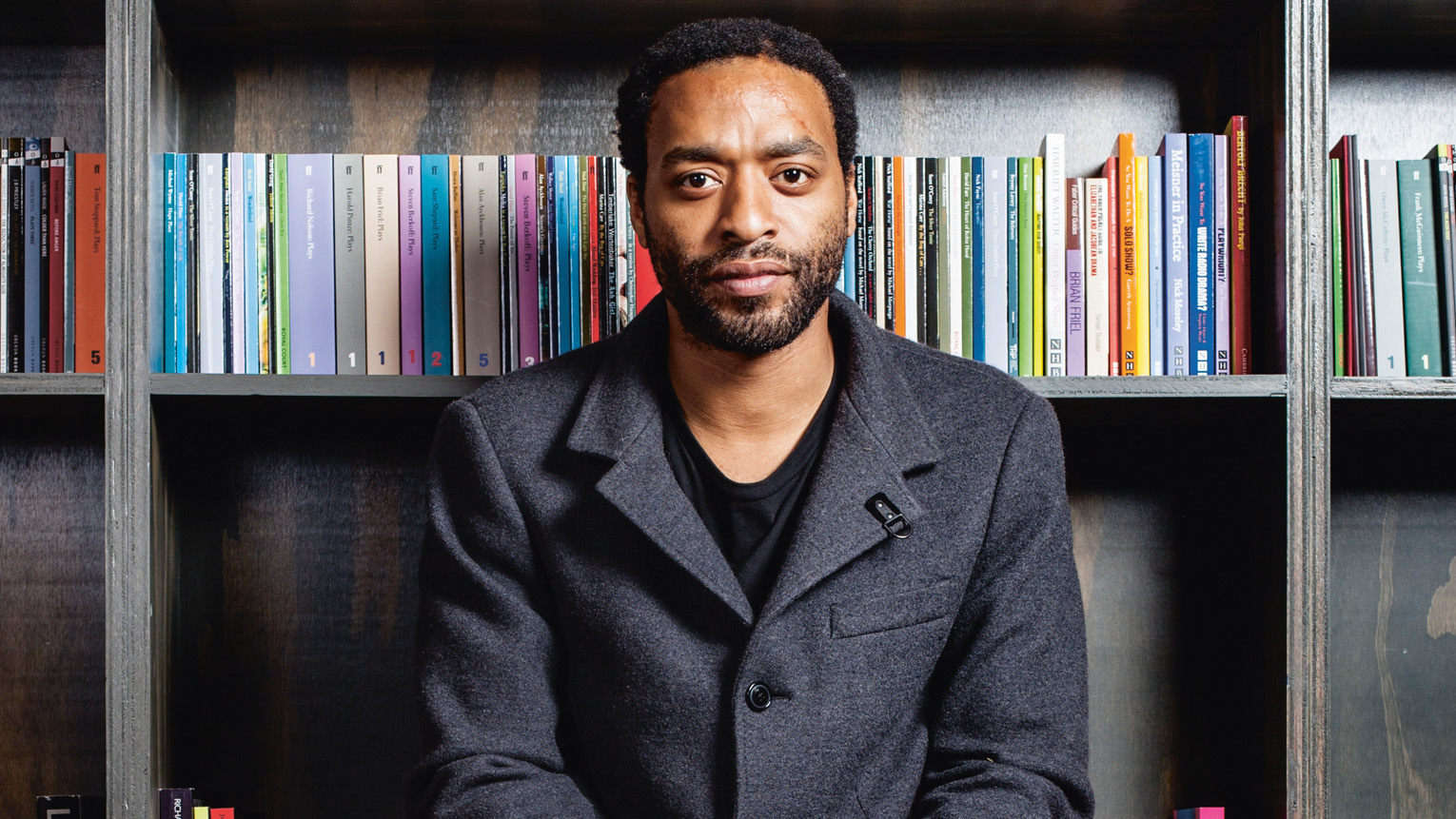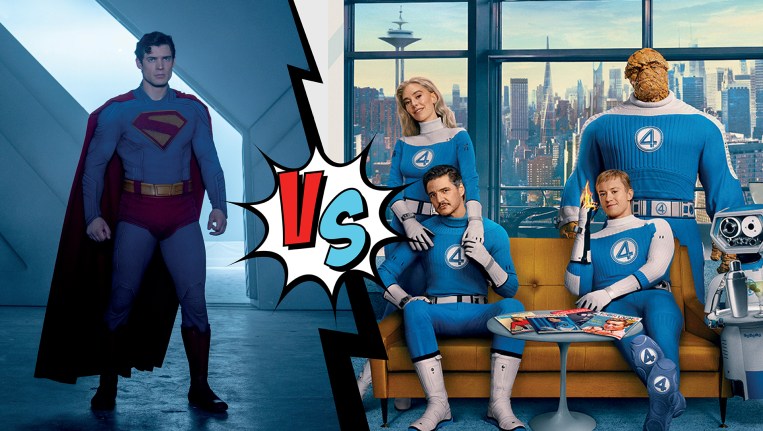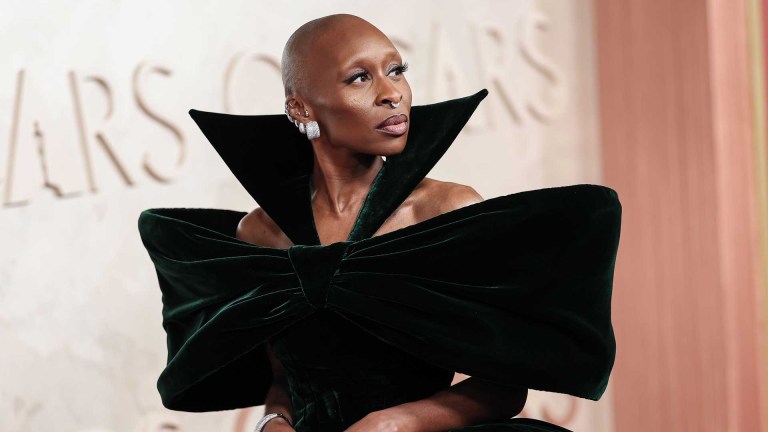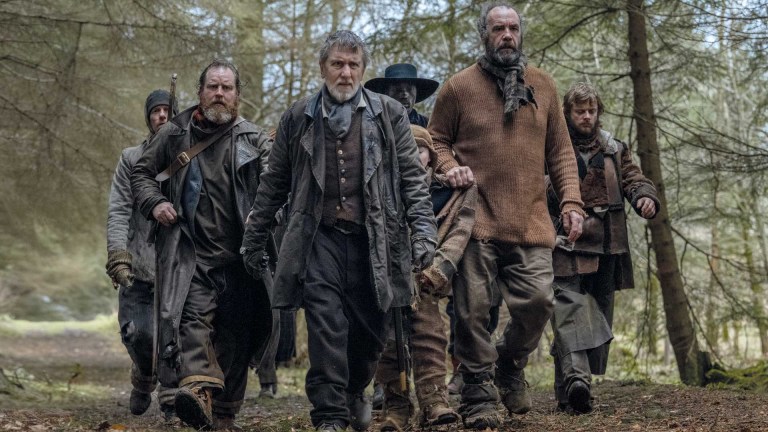I felt like I had discovered Shakespeare. At 13 or 14 I was going around telling everybody, “You have got to read this guy, he really gets it.” They were like, “Yeah, he is a fairly well-known writer!” I remember being surprised by how clearly this person from hundreds of years ago was talking about an experience and a personal, private feeling that I hadn’t really expressed to anybody. It was Henry IV Part I and I felt he was really speaking to an angst that I recognised and an anxiety about what the future would hold.
Being able to express emotions and feelings is an important part of the grieving process. And it is an important part of recovery in grieving [Ejiofor was in a car accident in Nigeria in 1988 in which his father was killed]. We are social and we want to communicate the feelings that we have. I felt very released when I started doing plays in a way I didn’t realise I needed. I would suddenly feel free to express myself in ways that I couldn’t in ordinary life… and then people would applaud at the end. Oh wow! It was overwhelmingly powerful.
I feel we can empower young people – we are all the result of empowered young people,
Teenage me wrestled with a lot. It is amazing to me that almost everything I am now is dependent on this young teenager. He made these decisions that then affected me as an adult in profound ways. But if I saw myself as a teenager, I would probably say, “You are far too young to be making these decisions.” He was a young kid, but he did well. I feel we can empower young people – we are all the result of empowered young people.
Life takes you on these extraordinary journeys. My younger self would not be able to conceive of the world that has opened to me. My first film, Amistad, was in LA and it was a Spielberg film. So just a few years from when we are talking about, my expectations were completely blown out of the water. I gained the understanding that an artistic life, a life in the arts, can be a deeply unpredictable life and an unpredictable lifestyle. It can have these extraordinary highs and lows.
Working with Steve McQueen on 12 Years a Slave was a huge moment for me. And an extraordinarily engaging time to tell Solomon Northup’s story. It felt like a big moment for cinema and a big moment generally. I was so deeply engaged in it, and admired Steve and what he brought to that film and the story he told. It was amazing. That was a great highlight for me. Filming Dirty Pretty Things with Stephen Frears was another real breakthrough and the first time I fell in love with film acting.
1993 – the year Chiwetel turns 16
- Nelson Mandela and FW de Klerk win the Nobel Peace Prize
- Al Pacino wins an Oscar for Scent of a Woman
- Teenager Stephen Lawrence is murdered in a racist attack in London
Once you build a few successes it opens other opportunities – and it is important to push the limits of those. You have to feel the wall and get to the point where it is pushing back because otherwise you are not fully exploring what can be done. From me reading The Boy Who Harnessed The Wind until now has taken the best part of 10 years. When I started writing it, I was a bit young to play Trywell Kamkwamba, but a few years ago I realised that, when we finally got it up and running I would be right in the sweet spot. Part of this experience was to see if I could try to do it authentically, filming in Malawi. You hear a lot about what you can’t do – but it is not really that you can’t do it, it’s that nobody has.
Knowledge, education, community – that is the clearest, most important thing we have. When people understand the capacity and opportunities they have, they can move towards them. That is true of education within the context of our film, but also of how we understand the world around us and our capacity to change things. Sometimes the status quo is reliant on us not having information. That is why it is really important to have a vibrant artistic community full of diverse voices and points of view. It enriches all of us to make informed decisions about the type of society we want. That is the privilege of living in a certain time and a certain place. You get access to all these different thoughts, feelings and places. The challenge around diversity is nuanced. It is not diversity for the sake of diversity. It is a diversity because underneath that is the possibility of different points of view.
I didn’t realise I was growing up in such a political age. I was writing in my diary about the first Iraq War, and around then there is also the fall of the Berlin Wall and the end of apartheid. It was all kicking off. Our understanding of the world was changing. The number of times our teacher would come into the classroom to say this new seismic event has happened – at that age, you just think it is normal. But even though it washed over me in a way, I was very aware of the world and global politics and that people were engaged in these big ideas.
My advice to my younger self would be to avoid crisis management. Just deal with one issue at a time as opposed to a crazed scattergun approach. It was as if I couldn’t feel comfortable until everything was perfect. For a long time that was a struggle – unless everything is brilliant, then everything is in tumult. I would ask my younger self to calm down and enjoy the ride, even if it seems a little bit crazy. And maybe I would apply that to everything, including relationships. To not try to make everything perfect, but to see things as they are and be calm within that.
The Boy Who Harnessed The Wind is on Netflix from March 1.
Image: Louise Haywood-Schiefer/Camera Press










